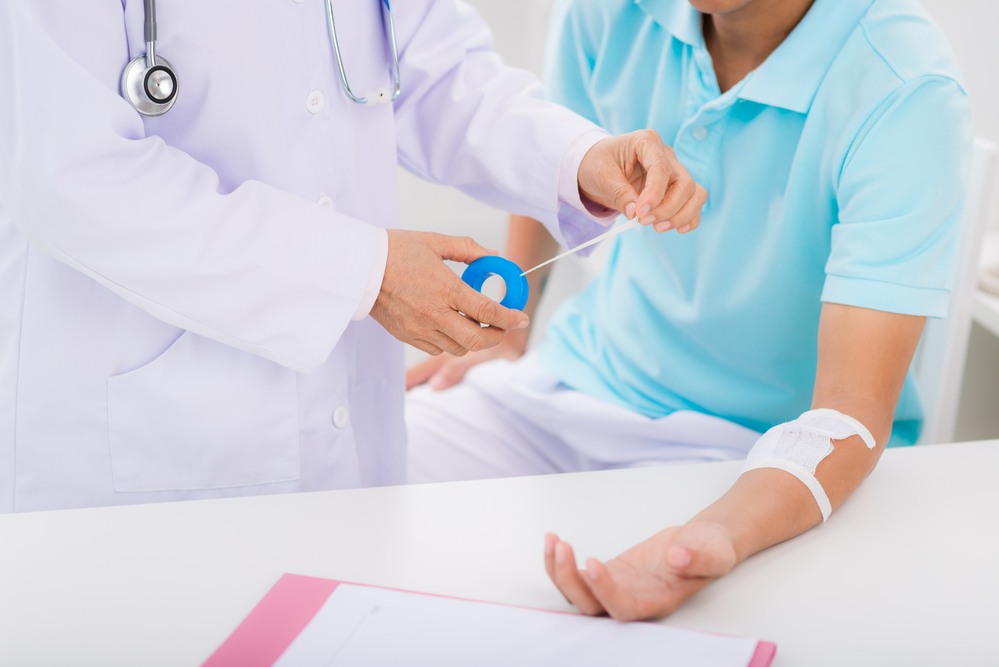Signs Your Surgical Wound Isn't Healing Properly
 Any time you undergo surgery, your surgeon or a nurse should provide you with detailed instructions on post-operative wound care. Hopefully, you follow these care instructions carefully. But even if you do, there is a chance that a surgical wound might not heal properly for some reason. How can you tell if that itching, discomfort, or pain is normal, or if it means that your surgical wound isn’t healing properly? Keep reading to find out.
Any time you undergo surgery, your surgeon or a nurse should provide you with detailed instructions on post-operative wound care. Hopefully, you follow these care instructions carefully. But even if you do, there is a chance that a surgical wound might not heal properly for some reason. How can you tell if that itching, discomfort, or pain is normal, or if it means that your surgical wound isn’t healing properly? Keep reading to find out.
Pus or Excessive Drainage
It’s important to be aware that some drainage is normal for most surgical wounds. As your wound heals, minimal to moderate discharge that is thin, clear, or pale yellow, is entirely normal, especially during the first week after your surgery. However, if you notice that the drainage is thick and discolored, this is likely a sign of infection. Additionally, if you’re experiencing large quantities of drainage, especially beyond that first week after surgery, this is a sign something is not healing properly.
Redness and Warmth around Incision
Immediately after your surgery, the blood vessels around the site will swell to help fight against bacterial and clotting. This means that some redness and warmth around the surgical site is, in fact, normal. However, because this is the first step in your body’s healing process, this is only normal for about the first week. If the warmth and redness grow worse or persist for longer than this, contact your doctor. You should also look out for any other signs of discoloration around the incision. If the skin along the edges of the incision begins to darken, seek medical attention immediately.
Strong, Foul Odor
If you are keeping your surgical wound clean and dry, there should be no reason for it to have any odor around it. Of course, some odors can occur if your dressing is old or if you’ve been sweating and some body odor has developed around the dressing. In these cases, however, you should immediately change your dressing and clean the site. If the foul odor persists even when the surgical site is clean, or if the odor is very strong, this could be a sign of infection, and it requires a doctor’s immediate attention.
Increasing Pain
Any time you undergo surgery, there will be pain around the area. This can continue throughout the healing process. As your body heals and the edges of your surgical site knit back together, it’s very common to experience itching and pain—even including sharp pains—around the wound. This is caused by sensation returning to those nerves as they heal. However, these pains are usually brief. So, if your pain is worsening or persisting, something is not healing properly. You could have an infection or, if the pain began quite suddenly and has persisted since then, you may have reinjured the area.
Signs of Sickness
An infection doesn’t just impact the wound site; it affects the entire body. If you have developed a fever and feel sick, it’s a good sign that you have an infection—especially if that sickness is accompanied by any of the other symptoms mentioned above. Fever and sickness are your body’s immune response to the presence of a virus or bacteria. While there can obviously be other causes of illness aside from an issue with your wound site, if you have undergone surgery lately and now have a fever, it’s always better to err on the side of caution and make an appointment with your doctor.
Properly Caring for Your Wound
The best way to prevent infection and ensure that your wound heals properly is to follow all of the instructions provided to you by your surgeon. These instructions can vary slightly depending on the location of your wound site and the type of surgery you had. However, generally speaking, you should try to keep the area clean and dry, and change out the dressings regularly. In addition to preventing infection and secondary health issues, proper wound care can help to minimize scarring from your surgery as well.
If you need supplies to properly care for your surgical wound, contact Medical Xpress today or stop by one of our many Texas locations. We carry a wide variety of wound care products to help make caring for a surgical wound—whether it’s your own, or you’re caring for a loved one who’s recently undergone surgery—simpler and easier. If you’re uncertain which supplies you need, bring your doctor’s instructions in with you, and we’ll help you find the dressings, cleaning supplies, and other products to help your wound heal quickly, correctly, and with minimal discomfort.